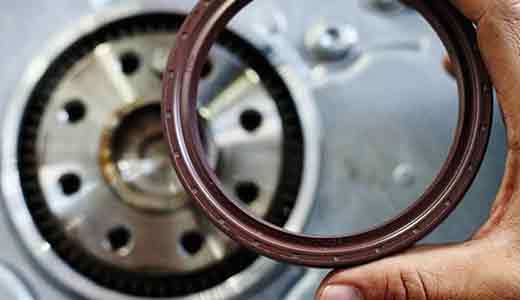Popular Information
Add: Yongkang st.renxian,xingtai city,hebei province china.054000
Tel:+86-319-7566977 7519805
Phone : +8613903298188
Fax:+86-319-7566976
E-mail :richard@bxseals.com
Understanding Industrial Diaphragm Seals: Essential Insights for Professionals
Release Time:
Nov 05,2025
Industrial diaphragm seals are essential components widely used in various industrial applications, particularly for protecting sensitive measuring instruments from the corrosive and harsh environments often found in process industries. These seals play a pivotal role in maintaining the integrity of pressure and level measurement devices by isolating the measuring element from the process fluid. T
Industrial diaphragm seals are essential components widely used in various industrial applications, particularly for protecting sensitive measuring instruments from the corrosive and harsh environments often found in process industries. These seals play a pivotal role in maintaining the integrity of pressure and level measurement devices by isolating the measuring element from the process fluid. This ensures accurate readings while preventing contamination and damage to the equipment.
One of the primary advantages of industrial diaphragm seals is their ability to handle aggressive media. They are designed to withstand high temperatures and pressures, making them ideal for applications involving corrosive chemicals, viscous fluids, or slurries. The diaphragm itself acts as a barrier, allowing for the transmission of pressure without exposing the measuring device to the potentially harmful effects of the process fluid.
When selecting an industrial diaphragm seal, several factors should be considered to ensure optimal performance. Firstly, the material of the diaphragm is crucial. Common materials include stainless steel, Inconel, and various elastomers, each with unique properties suitable for specific applications. The choice of material affects the seal's resistance to temperature extremes, chemical compatibility, and overall durability.
Another essential aspect to consider is the design of the diaphragm seal. There are various configurations available, including flush mount, threaded, and flange-mounted designs. Each design serves different application needs, such as ease of installation, maintenance, and cleaning. It is also important to assess the seal’s compatibility with the process connection to ensure a proper fit and prevent leaks.
In addition to material and design, the selection of appropriate filling fluids is crucial for diaphragm seals. The filling fluid transmits pressure from the process side to the measuring device while enhancing the seal's durability. Common filling fluids include mineral oils and glycerin, each offering different properties that may suit specific measurement requirements.
Regular maintenance and monitoring of diaphragm seals are vital to prolonging their lifespan and ensuring reliability. Professionals should routinely inspect these seals for signs of wear, corrosion, or leakage. Early detection of any issues can prevent costly downtimes and ensure safe operations in industrial settings.
In conclusion, industrial diaphragm seals are indispensable in safeguarding measuring instruments against harsh process conditions. Understanding their functionality, material selection, design configurations, and maintenance strategies can significantly enhance their performance and longevity. By making informed decisions regarding diaphragm seals, professionals can ensure the reliability and accuracy of their measurement systems, ultimately leading to more efficient industrial operations.
One of the primary advantages of industrial diaphragm seals is their ability to handle aggressive media. They are designed to withstand high temperatures and pressures, making them ideal for applications involving corrosive chemicals, viscous fluids, or slurries. The diaphragm itself acts as a barrier, allowing for the transmission of pressure without exposing the measuring device to the potentially harmful effects of the process fluid.
When selecting an industrial diaphragm seal, several factors should be considered to ensure optimal performance. Firstly, the material of the diaphragm is crucial. Common materials include stainless steel, Inconel, and various elastomers, each with unique properties suitable for specific applications. The choice of material affects the seal's resistance to temperature extremes, chemical compatibility, and overall durability.
Another essential aspect to consider is the design of the diaphragm seal. There are various configurations available, including flush mount, threaded, and flange-mounted designs. Each design serves different application needs, such as ease of installation, maintenance, and cleaning. It is also important to assess the seal’s compatibility with the process connection to ensure a proper fit and prevent leaks.
In addition to material and design, the selection of appropriate filling fluids is crucial for diaphragm seals. The filling fluid transmits pressure from the process side to the measuring device while enhancing the seal's durability. Common filling fluids include mineral oils and glycerin, each offering different properties that may suit specific measurement requirements.
Regular maintenance and monitoring of diaphragm seals are vital to prolonging their lifespan and ensuring reliability. Professionals should routinely inspect these seals for signs of wear, corrosion, or leakage. Early detection of any issues can prevent costly downtimes and ensure safe operations in industrial settings.
In conclusion, industrial diaphragm seals are indispensable in safeguarding measuring instruments against harsh process conditions. Understanding their functionality, material selection, design configurations, and maintenance strategies can significantly enhance their performance and longevity. By making informed decisions regarding diaphragm seals, professionals can ensure the reliability and accuracy of their measurement systems, ultimately leading to more efficient industrial operations.
Key words:



